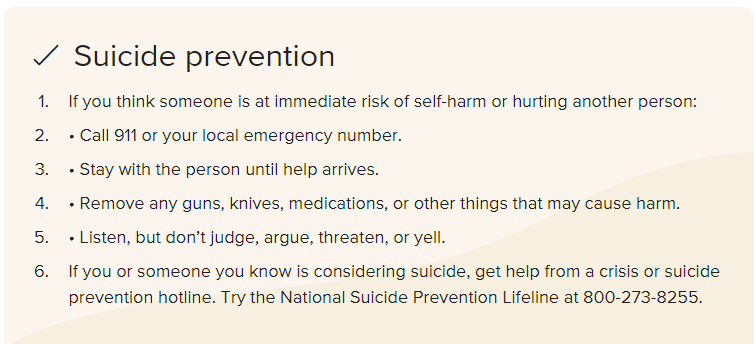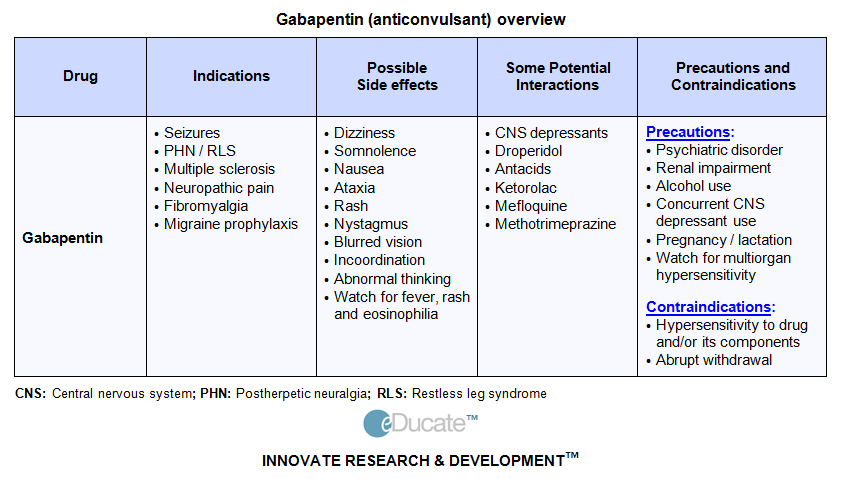The cheapest Gabapentin Online
We are specializing on Pain Medication and we can provide the cheapest fioricet, the cheapest gabapentin online.
![]()
Once we receive your order, our US licensed pharmacies will fill a prescription for a medication that is FDA approved. If your order was approved, the pharmacy will ship your orders in the same day it is approved or next day.
We only accept form Orders. We guarantee the cheapest Gabapentin, fioricet, and generic fioricet, butalbital apap caffeine online. As you know, we never sell controlled substance such as tramadol, soma online. We only sell fioricet, and gabapentin, flexeril, robaxin, zanaflex, cialis, and viagra online.
Order your prescription drugs from buy us and you can benefit from:
-
-
- Discreet, no cost medical consultations with US licensed doctors and pharmacists
- 100% FDA approved generic and branded prescription drugs sourced in the U.S.
- Free USPS Priority Mail shipping
- The security and accountability of a U.S. owned and operated business
- All Pharmacies associated are licensed to distribute in the states, you can be 100% sure to receive the same quality medication that you get from your local drug stores.
- Convenient 7 X 24 Access to Online Prescription Order System
- Save your Money and time
- Privacy Safeguarded Under Physician-Patient Privilege Law
- Save your insurance
- We accept both COD payment and Credit Card Payment. Credit Card Pharms are only for returned customers. You will get our credit card pharm URL after you have successfully accepted your first COD order.
-
Our website does not dispense nor prescribe medication directly. It is still a US licensed pharmacy who has the final authorization to approve or deny prescription requests.
When you ordered in our website, what we can do is to verify your order and send you a welcome email and ask you to check your email address and your physical address.
If everything is OK, we will send your order to a US licensed doctor to review your health information and then they will send it to a US licensed pharmacists and the US licensed pharmacy to send your order.
If you are our returned customer, your order will be directed directly to the doctor to review.
What is gabapentin?

Gabapentin is a prescription drug. It comes as an oral capsule, an immediate-release oral tablet, an extended-release oral tablet, and an oral solution.
Gabapentin oral capsule is available as the brand-name drug Neurontin. It’s also available as a generic drug. Generic drugs usually cost less than the brand-name version. In some cases, the brand-name drug and the generic version may be available in different forms and strengths.
Gabapentin (Generic Neurontin ) was developed to treat epilepsy, but it is now used to treat various forms of chronic pain. It works by reducing the number of signals sent through the nerves. If the signals are reduced then the pain will be reduced. Research has shown that Gabapentin can help in treating various types of nerve pain.
Why Gabapentin is used
Gabapentin oral capsule is used to treat the following conditions:
-
- Seizures: Gabapentin is used to treat partial (focal) seizures. It’s taken together with other seizure medications in adults and in children 3 years of age and older who have epilepsy.
- Postherpetic neuralgia: This is pain from nerve damage caused by shingles, a painful rash that affects adults. Shingles appears after infection with the varicella zoster virus. This virus occurs in people who have had chicken pox.
Gabapentin may be used as part of a combination therapy. This means you may need to take it with other drugs.
How Gabapentin works

Gabapentin belongs to a class of drugs called anticonvulsants. A class of drugs is a group of medications that work in a similar way. These drugs are often used to treat similar conditions.
It’s not fully understood how gabapentin works. For postherpetic neuralgia, it seems to prevent the increase in sensitivity to pain that occurs. For seizures, it may alter the effect of calcium (low levels of calcium may cause seizures).
Gabapentin off-label usages
Some Research Team performed searches to look for clinical trials where gabapentin was used to treat neuropathic pain or fibromyalgia. They found that 5633 participants had been involved in 37 studies of reasonable quality. They tested gabapentin against placebo for four weeks or more. Studies lasting only one or two weeks are unhelpful when pain can last for years.
Neuropathic pain is pain coming from damaged nerves. It differs from pain messages carried along healthy nerves from damaged tissue (a fall, cut, or arthritic knee).
Neuropathic pain is treated by different medicines than pain from damagedtissue. Medicines like paracetamol or ibuprofen are not effective in neuropathic pain, while medicines that are sometimes used to treat depression or epilepsy can be very effective in some people with neuropathic pain.
Our understanding of fibromyalgia (a condition of persistent, widespread pain and tenderness, sleep problems, and fatigue) is poor, but fibromyalgia can respond to the same medicines as neuropathic pain.
Gabapentin is helpful for some people with chronic neuropathic pain or fibromyalgia. Gabapentin comes as a capsule, tablet, or solution. You take it by mouth. Gabapentin is available as the brand-name drugs Neurontin, Gralise, and Horizant. It’s also available as a generic drug.
By Drugs.com, Gabapentin Can be used for a lot of Nerve Pain related health conditions. Gabapentin is also used for a lot of off-label usage such as Cough, Hot Flashes, Alcohol Withdrawal, Anxiety 161 reviews, Bipolar Disorder, Trigeminal Neuralgia, Postherpetic Neuralgia, Migraine, Insomnia, Occipital Neuralgia, Peripheral Neuropathy,Vulvodynia, Benign Essential Tremor, Epilepsy, Fibromyalgia, Pain Relief, Diabetic Peripheral Neuropathy , Neuropathic Pain,Reflex Sympathetic Dystrophy Syndrome,Periodic Limb Movement Disorder, Spondylolisthesis, Burning Mouth Syndrome,Pudendal Neuralgia, Small Fiber Neuropathy.
A lot of Patients use Gabapentin (Neurontin) to treat Hot Flashes, Anxiety, Bipolar Disorder, Migraine, Insomnia, Restless Legs Syndrome, Peripheral Neuropathy, Fibromyalgia, Neuropathic Pain. Fe patients use gabapentin to treat Pruritus, Cough, Occipital Neuralgia, Benign Essential Tremor, ement Disorder, Spondylolisthesis, Burning Mouth Syndrome, Pudendal Neuralgia, Small Fiber Neuropathy.


There are totally 1359 reviews on Gabapentin, only eleven reviews are on Epilepsy whereas 1348 reviews are on Gabapentin Off-label usage. The most widely usage of Gabapentin is for Anxiety ( 243 Reviews ), Pain Relief ( 241 Reviews ), Fibromyalgia ( 137 Reviews ), Peripheral Neuropathy (119 reviews ), Bipolar Disorder ( 83 reviews ), Migraine ( 79 reviews), Neuropathic Pain ( 75 reviews ), Hot Flashes (70 reviews ), Restless Legs Syndrome (61 Reviews ) and Insomnia ( 59 reviews). The most effective usage of Gabapentin is for Pruritus and Cough.
Order Neurontin Online with Free Prescription
A lot of patients buy Gabapentin (Neurontin) online to prevent migraine and treat nerve pain. When you want to order Neurontin (The Brand Name of Gabapentin ), you can go to our website buygabapentin800mg.com, please complete the health condition form very carefully. We have hired several US licensed doctors to review your health conditions and check whether you are OK to take Neurontin. If all your health conditions are OK to take gabapentin, they will write a free prescription for you to buy Neurontin. Once the doctors approve you to take neurontin, we will send you order to US licensed pharmacies immediately.The US licensed pharmacists will review your order and send you neurontin to your home by COD payment. All the prescription fee is paid by us and it is free for you. If your order is not approved by the doctors, we still need pay them the doctor review fee. so we would like the patients have the history of taking Neurontin.
Please remember that we cannot send you Neurontin if the doctor doesnot approve your prescription. Normally it take longer time for doctors to approve your prescription because they only work in week days and work five hours per day. We do suggest you refill your Neurontin in our website but not the first time to buy neurontin online in our website. We like to refill gabapentin ( Generic Neurontin ) for you.
02084279 Neurontin 300 mg capsule
02084287 Neurontin 400 mg capsule
02239717 Neurontin 600 mg tablet
02239718 Neurontin 800 mg tablet
How long will I have to take Gabapentin for?
This is different for different people. In general, Gabapentin will have to be taken for as long as you are requiring pain relief for nerve pain. Do not stop taking your Gabapentin suddenly if you have been taking it for a while. Your body will be used to the Gabapentin and stopping it suddenly may cause withdrawal symptoms. Reducing the dose slowly as advised by your pain specialist or GP will help stop withdrawal symptoms happening. You may wish to reduce the dose every so often, to check nerve pain is still a problem.
How to take Gabapentin ?
The dose of gabapentin required varies from person to person. To avoid side effects we build up to the dose gradually. The tables in this leaflet show you how this can be done. Some patients can put their dose up faster than others. We call this faster way the FAST TRACK (see table 1).
If you find you are getting side effects with the fast track way of putting your dose up, you can switch to the SLOWER METHOD. ( see table 2).ther people will need to put their dose up less quickly over a number of weeks. This is THE SLOWER METHOD .
As with any medication it is important to check how well it works. With gabapentin this can be in a few days but for most patients may take 4-8 weeks to assess the full benefit. If you feel you are getting no benefit from this medication please discuss this with your GP or pain specialist.
Gabapentin other Off-label usages
Gabapentin is one drug that researchers have studied for preventing migraines. It has a high safety profile and few side effects. This makes it a good option for Migraine prevention. Results from some clinical trials have shown a modest benefit from the use of gabapentin for migraine prevention.
However, the American Academy of Neurology (AAN), the organization that provides guidance for the use of drugs to prevent migraines, has stated that there is not enough evidence at this time to support the use of gabapentin for migraine prevention. Healthcare professionals can choose to prescribe gabapentin when other prevention therapies have not worked, however.
Gabapentin has been proven to be effective for people who have hard-to-treat depression or other mood disorders. Neurontin is not your traditional anxiety drug. It’s a drug primarily described to those with bipolar disorder, not anxiety. Bipolar disorder is a complicated mental health problem.
Gabapentin was successful in helping with rapid cycling and mixed bipolar states in people who have not received relief from valproate or carbamazepine. It appeared that Gabapentin helped more with anxiety and agitation than the other two drugs.
It has also been shown that Gabapentin could aid people with certain types of tardive dyskinesia. That’s why anyone that has been prescribed Neurontin should strongly consider taking it, despite the side effects above and questions about its effectiveness. Bipolar disorder is not something that should be left to chance.
The total number of patients treated with NEURONTIN in controlled clinical trials in patients with postherpetic neuralgia was 336, of which 102 (30%) were 65 to 74 years of age, and 168 (50%) were 75 years of age and older. There was a larger treatment effect in patients 75 years of age and older compared with younger patients who received the same dosage. Since gabapentin is almost exclusively eliminated by renal excretion, the larger treatment effect observed in patients ≥ 75 years may be a consequence of increased gabapentin exposure for a given dose that results from an age-related decrease in renal function.
However, other factors cannot be excluded. The types and incidence of adverse reactions were similar across age groups except for peripheral edema and ataxia, which tended to increase in incidence with age.
Clinical studies of NEURONTIN in epilepsy did not include sufficient numbers of subjects aged 65 and over to determine whether they responded differently from younger subjects.
Other reported clinical experience has not identified differences in responses between the elderly and younger patients. In general, dose selection for an elderly patient should be cautious, usually starting at the low end of the dosing range, reflecting the greater frequency of decreased hepatic, renal, or cardiac function, and of concomitant disease or other drug therapy.
This drug is known to be substantially excreted by the kidney, and the risk of toxic reactions to this drug may be greater in patients with impaired renal function. Because elderly patients are more likely to have decreased renal function, care should be taken in dose selection, and dose should be adjusted based on creatinine clearance values in these patients.
What form(s) does this medication come in?

Capsules
100 mg – Each hard gelatin Coni-Snap capsule, with white opaque body and cap printed with “PD” on one side and “Neurontin/100 mg” on the other, contains gabapentin 100 mg.
300 mg – Each hard gelatin Coni-Snap capsule, with yellow opaque body and cap printed with “PD” on one side and “Neurontin/300 mg” on the other, contains gabapentin 300 mg.
400 mg – Each hard gelatin Coni-Snap capsule, with orange opaque body and cap printed with “PD” on one side and “Neurontin/400 mg” on the other, contains gabapentin 400 mg.
Tablets
600 mg – Each white, elliptical, film-coated tablet with “Neurontin 600” printed on one side contains gabapentin 600 mg.
800 mg – Each white, elliptical, film-coated tablet with “Neurontin 800” printed on one side contains gabapentin 800 mg.
How to take gabapentin
The gabapentin dosage your doctor prescribes will depend on several factors. These include:
-
-
- the type and severity of the condition you’re using gabapentin to treat
- your age
- the form of gabapentin you take
- other medical conditions you may have
-
Typically, your doctor will start you on a low dosage and adjust it over time to reach the dosage that’s right for you. They’ll ultimately prescribe the smallest dosage that provides the desired effect.
The following information describes dosages that are commonly used or recommended. However, be sure to take the dosage your doctor prescribes for you. Your doctor will determine the best dosage to suit your needs.
We do not sell Gabapentin to all patients!
Normally Gabapentin is suitable for all adult and children bigger than six years old. But you are not allowed to order Gabapentin online especially in our online pharmacies if you have any of following health conditions (But you are OK to order in your local street pharmacies):
-
-
- You are younger than 18 years old;
- You have kidney disease;
- Alcohol – you are addictive to alcohol, gabapentin may cause alcohol intolerance;
- diabetes – Gabapentin may affect blood sugar levels, you must find a local doctor to prescribe you Gabapentin.
- kidney disease,liver disease and heart diseases;
- a history of depression, mood disorder, drug abuse, or suicidal thoughts or actions;
- (for patients with RLS) if you are a day sleeper or work a night shift;
- You are breastfeeding mother or you are pregnant;
- have thoughts about suicide.
- If you are allergy to Gabapentin
-
Stop immediately if you have any thoughts about suicide.
Donot order Gabapentin online if you have suicide thoughts. Please go to your doctor to have you completely checked.
We hope you can refill your Gabapentin online using our online pharmacy. You have already checked by your local doctors and they have prescribed you Gabapentin. After your first prescription, you can order in our websites. Our doctors and pharmacists will review your health conditions too and it is much easier for you to understand the gabapentin prescription you are taking.
Gabapentin may interact with other medications
Gabapentin oral capsule can interact with several other medications. Different interactions can cause different effects. For instance, some can interfere with how well a drug works, while others can cause increased side effects.
Below is a list of medications that can interact with gabapentin. This list does not contain all drugs that may interact with gabapentin.
Before taking gabapentin, be sure to tell your doctor and pharmacist about all prescription, over-the-counter, and other drugs you take. Also tell them about any vitamins, herbs, and supplements you use. Sharing this information can help you avoid potential interactions.
If you have questions about drug interactions that may affect you, ask your doctor or pharmacist.
Pain drugs
When used with gabapentin, certain pain drugs can increase its side effects, such as tiredness. Examples of these drugs include:
- morphine
Stomach acid drugs
When used with gabapentin, certain drugs used to treat stomach acid problems can reduce the amount of gabapentin in your body. This can make it less effective. Taking gabapentin 2 hours after taking these drugs can help prevent this problem. Examples of these drugs include:
- aluminum hydroxide
- magnesium hydroxide







